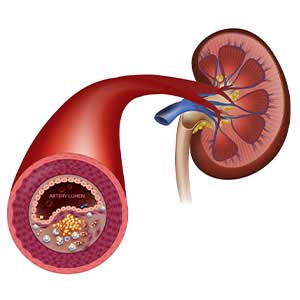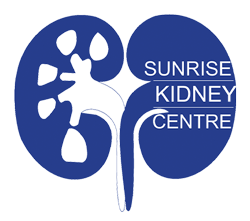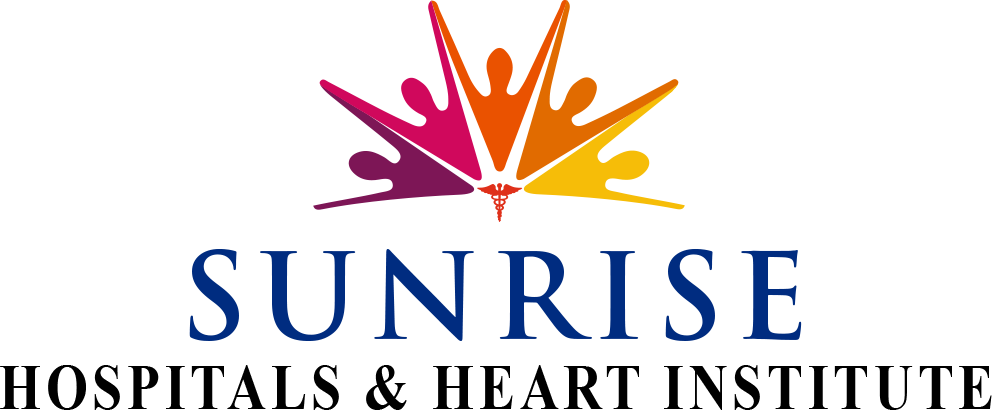Hypertension, commonly known as high blood pressure, occurs when the force of blood pushing against artery walls exceeds normal levels, typically above 140/90 mm Hg, and becomes critical if it surpasses 180/120 mm Hg. Often asymptomatic, untreated hypertension can result in severe health issues such as strokes and cardiovascular diseases. High B.P treatment in Vijayawada involves adopting a balanced, low-salt diet, engaging in regular physical activity, practicing stress reduction techniques, quitting smoking, and adhering to prescribed medications. Renal hypertension is a specific form caused by kidney dysfunctions, and it can often be effectively managed with antihypertensive drugs tailored to address renal-related blood pressure elevations.
Symptoms of renal hypertension
Renal high blood pressure, or secondary hypertension caused by kidney issues, often presents with symptoms like persistent headaches, dizziness, and blurred vision due to elevated blood pressure. Patients may experience flank pain or a feeling of fullness in the abdomen, alongside symptoms of kidney dysfunction such as swelling in the ankles or face from fluid retention. In some cases, there’s increased urinary frequency, blood in the urine, or proteinuria, indicating kidney damage. Fatigue and decreased appetite may also occur, reflecting systemic effects. Recognizing these symptoms early is crucial for diagnosis and management to prevent further renal and cardiovascular complications.

Diagnosis of hypertension
Diagnosing high blood pressure, or hypertension, involves multiple steps to ensure accuracy. The primary method is measuring blood pressure with a sphygmomanometer, typically during a clinical visit, with readings taken on several occasions to confirm persistent elevation. Ambulatory blood pressure monitoring over 24 hours is often recommended for more comprehensive assessment, capturing fluctuations throughout the day. Healthcare providers also evaluate risk factors such as family history, lifestyle, and comorbidities, alongside conducting physical exams and blood tests to rule out secondary causes. Proper diagnosis is crucial for early intervention, preventing complications like heart disease and stroke, and tailoring effective treatment strategies.
Diagnosing renal hypertension
Diagnosing renal hypertension involves a combination of clinical evaluation and specialized tests. Initially, a thorough history and physical exam focus on identifying risk factors and signs of kidney disease. Laboratory tests include serum creatinine, blood urea nitrogen, and urinalysis to assess kidney function and detect proteinuria. Imaging studies like renal ultrasound help visualize kidney structure and identify abnormalities such as stenosis or cysts. Advanced techniques such as CT angiography or MR angiography provide detailed vascular assessment. Additionally, renal arteriography remains the gold standard for confirming renal artery stenosis, often guiding potential interventions like angioplasty or stenting, ensuring accurate diagnosis and effective management of renal hypertension.
Effect of hypertension on kidneys
High blood pressure, or hypertension, exerts a significant impact on kidney health by damaging the delicate blood vessels within the kidneys, leading to impaired filtration and decreased kidney function. Elevated pressure forces the arteries in the kidneys to work harder, causing them to thicken and become less elastic, which diminishes blood flow and oxygen supply. Over time, this can result in scarring and loss of nephrons—the functional units of the kidney—ultimately leading to chronic kidney disease (CKD) or even kidney failure. Hypertension also accelerates the progression of existing kidney conditions, compounding health risks. Conversely, compromised kidney function can exacerbate hypertension, creating a vicious cycle that further damages both organs. Therefore, managing blood pressure is crucial for kidney failure treatment in Vijayawada, preserving kidney health, preventing irreversible damage, and maintaining overall systemic balance, underscoring the importance of early detection and consistent treatment of high blood pressure.
Management of hypertension
To prevent or manage high blood pressure, adopt a holistic lifestyle approach by maintaining a balanced diet rich in fruits, vegetables, and whole grains while reducing salt intake. Regular physical activity, such as brisk walking or cycling, strengthens the heart and improves circulation. Manage stress through mindfulness techniques like meditation or deep breathing exercises. Limit alcohol consumption and avoid smoking to promote vascular health. Monitoring blood pressure regularly helps detect changes early, allowing timely intervention. Prioritize sleep hygiene and maintain a healthy weight to further reduce hypertension risk. Consulting healthcare providers for personalized advice and medication adherence is essential in managing existing high blood pressure effectively.
Treatment of renal hypertension
Renal hypertension, often caused by renal artery stenosis, requires targeted treatment to restore kidney perfusion and control blood pressure. Management options include antihypertensive medications such as ACE inhibitors, ARBs, diuretics, and calcium channel blockers to reduce vascular resistance. In cases of significant artery narrowing, angioplasty with or without stenting can be performed to mechanically improve blood flow. Surgical revascularization may be necessary for resistant cases or complex lesions. Additionally, lifestyle modifications like salt restriction, weight management, and smoking cessation support medical therapy. Early diagnosis best nephrology doctor in Vijayawada and a tailored approach is crucial to prevent progressive renal damage and cardiovascular complications associated with this condition.
To schedule an appointment with Dr. M. V. Sai Krishna, the renowned nephrologist at Sunrise Kidney Centre in Vijayawada, for high blood pressure concerns, please contact the clinic directly at their official phone number or visit their website for online booking options. Ensure to specify your symptoms and mention that you want a consultation for high BP to receive personalized care aimed at addressing your specific needs.

